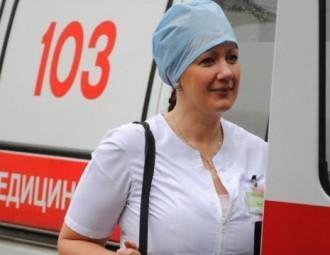Pro-government trade union promise to solve the problems of ambulance service staff

According to the chief of the Minsk city Trade Union, decent working conditions will be provided for the ambulance service staff.
The Belarusian Trade Union of Health Workers, which is affiliated with the pro-government Federation of Trade Unions of Belarus (FTUB), has drawn up about 20 proposals for improving the working conditions of ambulance service staff, BelaPAN reports. The union suggests, among other things, raising pay for ambulance staff by 25 percent and making them eligible for pay supplements.
The proposals were devised after a study of the problems of ambulance workers in Minsk and the Minsk, Hrodna, Homel and Mahilou regions, the press office said.
The government`s news agency BelTA reported on January 9 that authorities were promising to raise pay for ambulance service staff in Minsk in 2014. Thus, the monthly supplement for ambulance service staff who work under contracts will be increased from 50 percent of their salaries to reach 6.5 times the Base Rate, or 845,000 roubles at present ($90), for doctors and for paramedics who work without the supervision of doctors. The news agency also informs about the formation of a commission to consider an online petition demanding that the pay of ambulance service staff should be at least doubled.
-
03.01
-
07.10
-
22.09
-
17.08
-
12.08
-
30.09



























